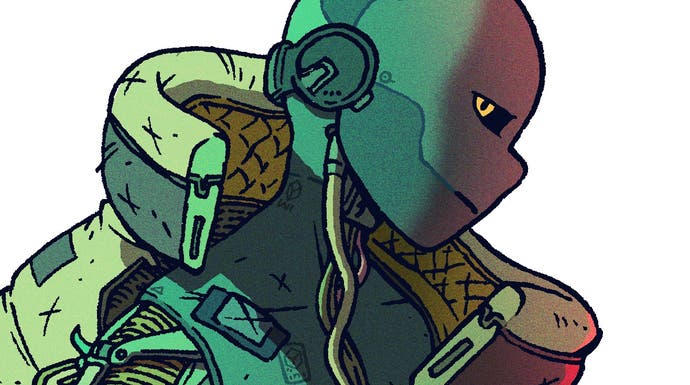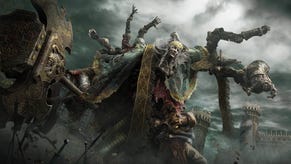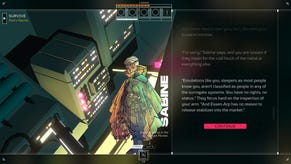Citizen Sleeper: a gripping mash-up of board game and RPG
From the maker of In Other Waters.
Gareth Damian Martin found a new way to tell a story in In Other Waters, presenting us with a luminous dashboard of buttons and scanners and radars to toy around with, then feeding a story through it. It was elegant, it was unusual and it worked - it made a big impression on me. Their new game Citizen Sleeper leaves a similar impression but it works rather differently.
Citizen Sleeper is a mixture of board game and role-playing game. The role-playing part is familiar: you experience a space station playing area through text, and there's a character sheet with skills you can improve as you level up. There are some eye-catching character illustrations to decorate it, and a simply rendered space station floating in the background, but it's mostly text and imagination that fuel the adventure.
The board game part is more complex. It's based around dice rolls and rounds. Every round, a new set of dice is rolled. You then individually use those dice to accomplish tasks, like earning money at a scrap metal yard or exploring an area.
To do this, you use your cursor to pull a rolled-die down from the top of your screen into an activity box, then wait for the outcome. The higher the number on the die, the greater your chance of success (and character's skills modify this), but there are neutral and negative outcomes too - and depending on how risky the task is, these can potentially sting. When you've used all your dice, you go to your home space on the station and sleep, starting a new round and a roll of the dice.
While all of this is going on, gauges fill. They look like pie charts and are either filled by doing repeatable tasks or simply by the passing of time, and when they're full, something happens. This can be a good thing, like moving a part of a story on, or it can be a bad thing, like being hunted.
You are a Sleeper in the game, you see, a sort of cyborg, and you're the property of a galactic corporation. Except, you've woken on a space station and slipped your corporate shackles somehow. You don't really know who you are, though, or what's going on, but you know you're different. You know you can do things others can't, like access a computer-level layer of the space station and hack into it - a valuable skill people will want to take advantage of. And in doing so, you will learn more about the wider story and your place in it. But you'll also come to know, as I said, that you are hunted - both mentally and physically.
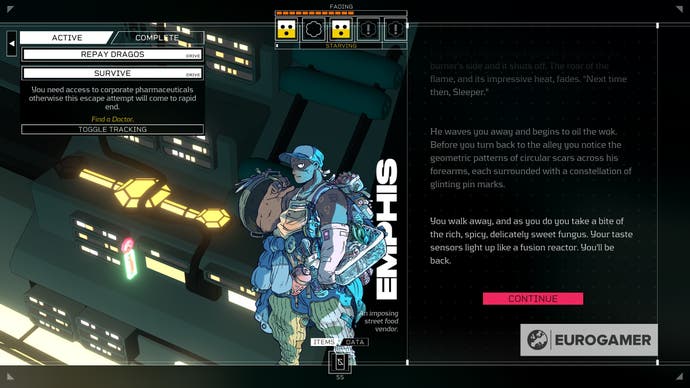
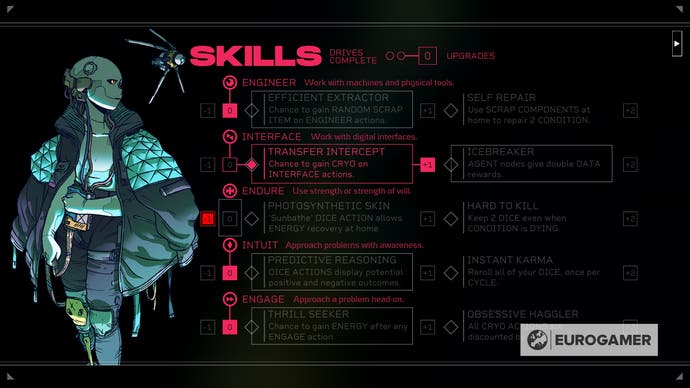
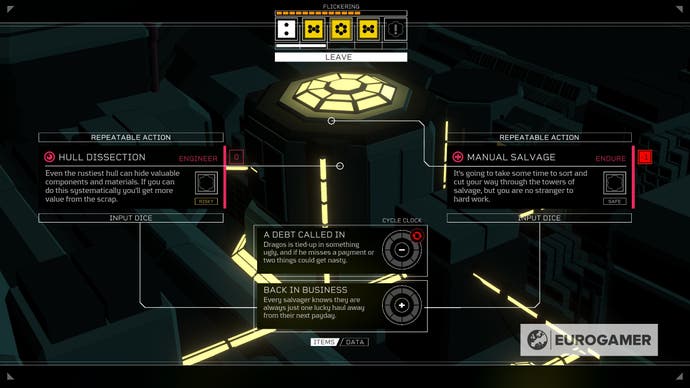
That's the rough set-up. There are various other things that affect the formula as you play, like energy that replenishes when you eat, and something called Condition that affects how many dice you can roll at the beginning of a round. It's a lot to get your head around - it's a lot to take in up front. And the game isn't particularly skilful about dumping it all on you, using a series of pop-up tutorial screens one after another to instruct you - more text to punctuate more text.
But if you can persevere past that, an appreciation for the novel mechanics begins to emerge. The gauge-game becomes a kind of juggling act as you work towards some outcomes while holding your breath about others, and soon, story elements are popping like fireworks all over your expanding space station map. You begin to feel a game and story in flow. And it's then that the richness of Citizen Sleeper emerges, that a quiet grip begins to squeeze as a mystery takes hold. It's not the same toy as In Other Waters, but it sneaks up on you in the same way. It's clever, it's classy, and I think Gareth Damian Martin is onto a winner again.
